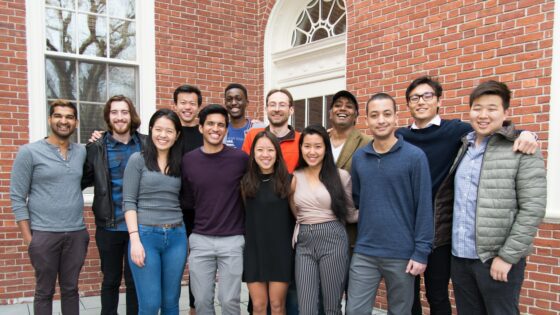Deadline: 3 October 2024
Registration is now open for the Harvard Radcliffe Fellowship Programme 2025-2026 . The Radcliffe Fellowship Programme awards 50 fellowships each academic year. Radcliffe Fellows are exceptional scientists, writers, academics, public intellectuals and artists whose work is making a difference in their professional fields and in the world at large.
Based in Radcliffe Yard - a sanctuary in the heart of Harvard University - fellows join a uniquely interdisciplinary and creative community. A fellowship at Radcliffe is an opportunity to break away from the usual routines and dive deep into a project. With access to Harvard's unrivalled resources, Radcliffe Fellows develop new tools and methods, challenge artistic and academic conventions and illuminate the Institute's past and present.
They welcome proposals relevant to the Institute's focus areas, which include the following:
- Climate change, especially proposals that address critical issues of impact and equity.
- Academic freedom and the connection between differences, especially proposals that address political polarisation, inequality, state regulation and other political issues related to freedom of research in higher education institutions.
Benefits
- Fellows receive a grant of US$ 78,000 plus an additional US$ 5,000 to cover project expenses. Please note that if you are a US citizen or permanent resident coming from a US-based home institution, you can choose to have your scholarship paid through your home institution or directly to you.
- Harvard Radcliffe Fellows may also be eligible to receive relocation funds, housing and childcare to help them make a smooth transition to Radcliffe. Healthcare support is available as needed. If fellows wish to hire Harvard undergraduate students as research partners, they will cover their hourly wages.
- Harvard Radcliffe Fellows may also be eligible to receive relocation funds, housing and childcare to help them make a smooth transition to Radcliffe. Healthcare support is available as needed. If fellows wish to hire Harvard undergraduate students as research partners, they will cover their hourly wages.
- Eligibility
- Candidates in the humanities and social sciences must:
- Have received their doctorate (or appropriate terminal degree) in the field of the proposed project at least two years prior to their appointment as a scholarship holder (December 2023 for scholarship year 2025-2026).
- Have published a monograph or at least two articles in refereed journals or edited collections.
- Candidates in science, engineering and maths must:
- Have received their doctorate in the area of the proposed project at least two years before their appointment as a scholarship holder (December 2023 for the 2024-2026 scholarship year).
- Have published at least five articles in refereed journals. Most science, engineering and maths fellows have published dozens of articles.
- Applicants in the creative arts must meet the discipline-specific eligibility requirements as described below:
- Film and Video: Candidates in this discipline should have a body of independent work of significant achievement. These works will normally have been exhibited in galleries or museums, screened at film or video festivals or broadcast on television.
- Visual Arts: Candidates for this discipline must present strong evidence of achievement, with a track record of at least five years of work as a professional artist, including participation in several curated group shows and at least two professional solo exhibitions.
- Fiction and Non-Fiction: Candidates in these disciplines must have one of the following:
- one or more published books;
- a contract for the publication of a book-length manuscript; or
- at least three shorter works (longer than newspaper articles) published.
- Poetry: Candidates for this subject must have published at least 20 poems in the last five years or published a book of poetry and must be in the process of completing a manuscript.
- Journalism: Candidates in this discipline must have worked professionally as a journalist for at least five years.
- Dramaturgy: Candidates in this discipline should have a significant body of independent work on the form. This will most typically include plays produced or under option.
- Music Composition: It is desirable, but not compulsory, for music composition candidates to have a PhD or DMA. Most importantly, the candidate should present strong evidence of success as a professional artist, with a track record of recent performances.
- Former Harvard Radcliffe Fellows (1999 to the present) cannot apply.
- Application
- The deadline for applications in the humanities, social sciences and creative arts is 12 September 2024.
- The deadline for science, engineering and maths applications is 3 October 2024.
- Click here to register


